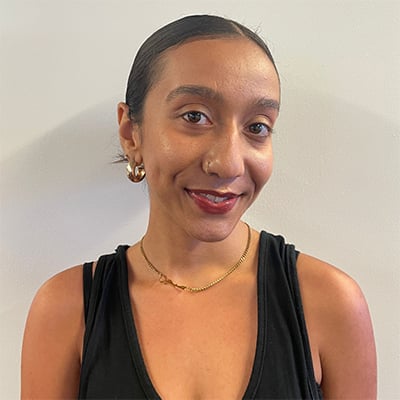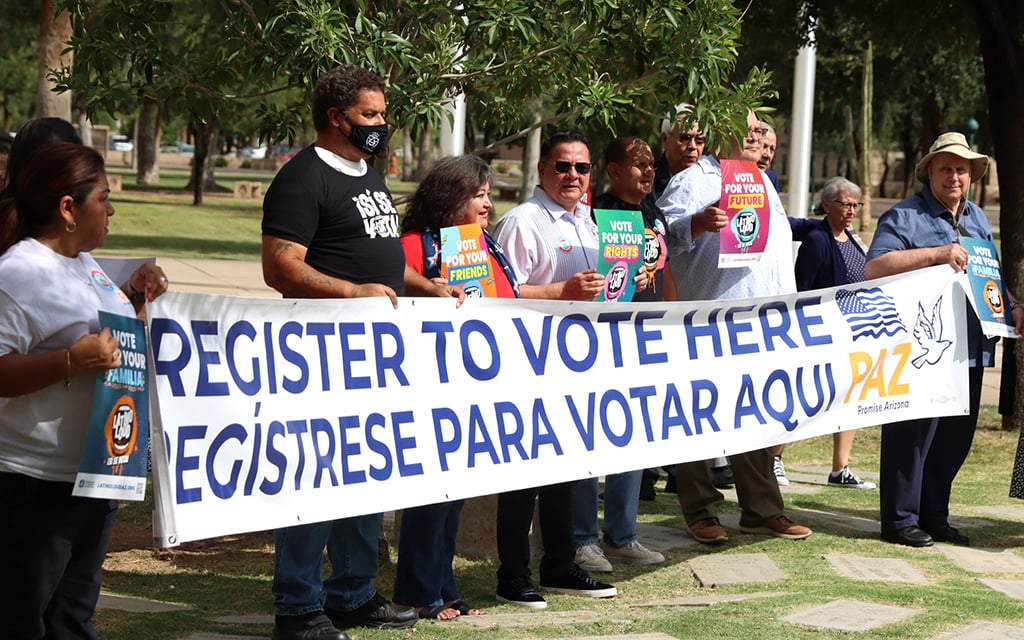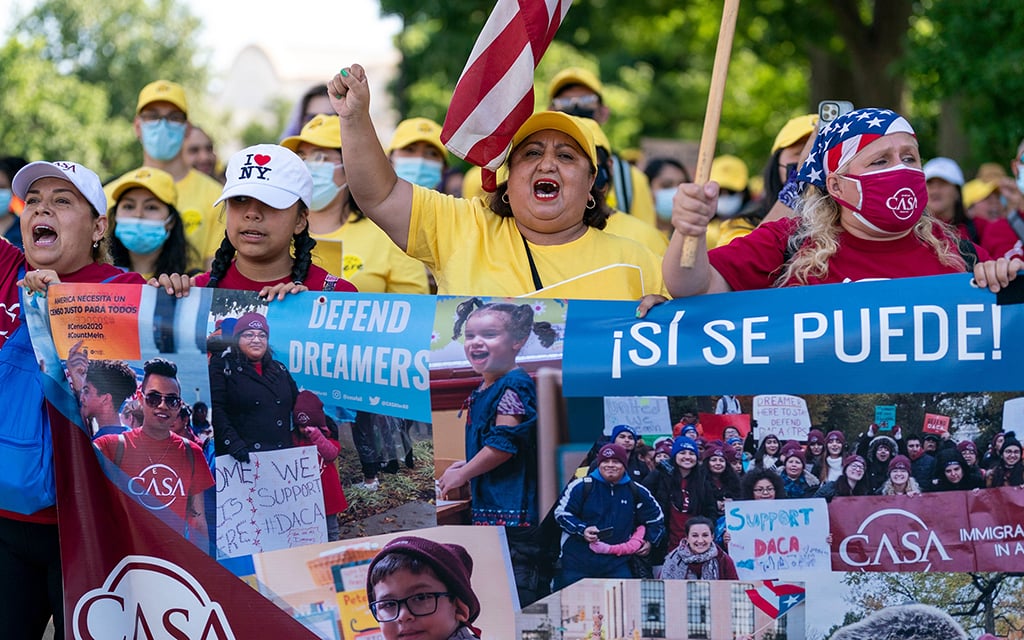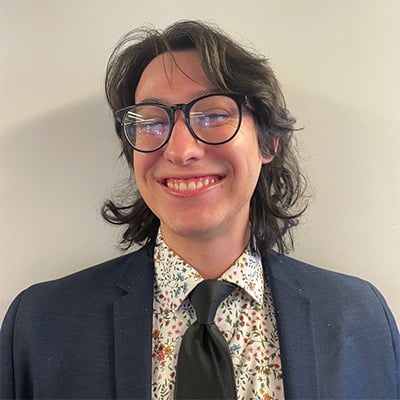WASHINGTON – Arizona’s migrant communities have much on the line in the 2024 elections, with former President Donald Trump vowing mass deportations, and the end of both DACA protections and automatic citizenship for children born to non-Americans.
With no right to vote, some people in the country without legal status are finding ways to make their voices heard through grassroots activism – encouraging others to support sympathetic candidates.
“Not being able to vote puts you at a huge disadvantage. But we decided to organize our family, friends and people in the community that have the power of voting. We give them some information, and we share stories on how these decisions impact our daily life,” said Karina Ruiz, executive director at the Arizona Dream Act Coalition.
The group promotes civic engagement among Latinos and mixed-status families.
Arizona was home to 250,000 of roughly 11 million people living in the country illegally in 2022, according to a July 22 report from the Pew Research Center. That’s about 3.5% of the state’s total population, which is slightly above the national average.
The state has been at the center of immigration debates during a tumultuous campaign, with Trump and other Republicans accusing the Biden administration of allowing millions of people into the country illegally through inviting policies and weak border security.
Ruiz is a beneficiary of Deferred Action for Childhood Arrivals, the program created by former President Barack Obama to shield migrants brought into the country illegally as children from deportation.
Still unable to vote after 11 years with DACA status, Ruiz said policies such as Arizona’s SB 1070 – enacted in 2010 and dismantled by the U.S. Supreme Court in 2012 – continue to strike fear. The law allowed local police to enforce federal immigration law, demand proof of citizenship and arrest anyone suspected of being undocumented.
It was the nation’s toughest anti-immigrant law at the time. It terrorized Latinos. A 2014 study in the American Journal of Public Health found that fears of deportation under SB 1070 deterred migrants from seeking medical treatment, including prenatal care.
Ruiz stopped driving out of fear she would be pulled over, separated from her son and deported. U.S. citizens also feared what would happen if they were ever detained without a drivers license or other identification.
A similar measure is on the November ballot in Arizona, known as Proposition 314.
Democratic Gov. Katie Hobbs vetoed an effort to effectively resurrect SB 1070 earlier this year. The GOP-controlled Legislature then adopted the ballot measure, which bypasses the governor.
Proposition 314 would make it a state crime to enter the United States illegally. The measure would also impose broader immigration checks for people seeking jobs and strengthen the penalty for fentanyl sales that lead to a fatality.
The Arizona Dream Act Coalition has been at the frontlines trying to persuade voters to kill the proposal.
The organization calls would-be voters. It goes door-to-door speaking with Latino voters and mixed-status families and helps people register to vote. It shares information on ballot measures relevant to DACA and people without documentation, and points voters to sources to learn more.
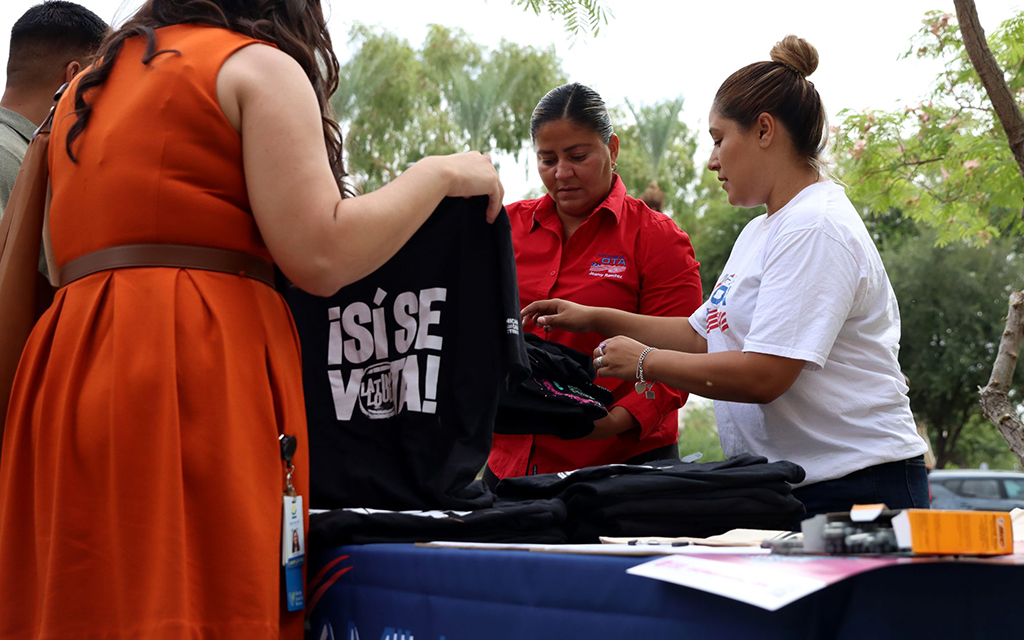
Jeamy Ramirez, left, and Edith Betancourt of Mi Familia Vota distribute free T-shirts at a National Voter Registration Day rally at the state Capitol in Phoenix on Sept. 20, 2022. The shirts read “¡Sí Se Vota!” (Yes, we vote!) and “Latino Loud.” (File photo by Alexia Faith/Cronkite News)
“It is going to create racial profiling that is not going to solve any issues. We want people to know that they’re at risk of being stopped by police just because they’re listening to Mexican music,” said Ruiz.
“Family separation is a gloomy cloud that is always over our heads,” she said.
Ruiz crossed the Southern border illegally with her parents in 1999. She was 15. At the time, student protests against rising tuition rates were sweeping through Mexico and led to the closure of schools.
The family reached Tucson, originally intending to stay for a year. They decided not to return to Mexico after seeing increased militarization at the border that would have made it harder to get back into the United States without permission.
DACA status in 2013 brought relief, though her parents still faced the prospect of deportation.
Her father had been robbed repeatedly and held at gunpoint while collecting recyclable materials in their community to sell, she said. Neighbors witnessed the third robbery and reported it to the police – potentially making him eligible for a U visa, a type granted to crime victims.
Ruiz’s mother had hoped to receive legal status through her husband’s application. But the visa process often takes years, and by law an annual cap of 10,000 issued per year. He died of COVID-19 in 2020 before the visa came through, and his wife found herself hopeless and in limbo, their daughter said.
Today, Ruiz worries about what a Trump presidency would mean for her mom and people like her, and for DACA recipients like herself – commonly referred to as “Dreamers” – though she is “confident that Arizonans are going to say no to this initiative (Proposition 314).”
Trump tried to kill DACA when he was president and he promises more rigid immigration policies in a second term.
Milagros Heredia, a 22-year-old Dreamer who attends Grand Canyon University, was a baby when her mother brought her to the U.S. from Mexico for medical care. At 8 months, she was diagnosed with a brain tumor. Uninsured, the family struggled to afford treatment.
“The only choices were almost dying in Mexico with my health condition or trying to survive here in the United States,” Heredia said.
The Make a Wish program and other nonprofits provided help. The family got assistance for most of Heredia’s treatments, but not all.
Specialists gave her a 15% chance of survival and told the family that even if she did, the tumor would pose lifelong learning issues that likely would preclude college. After years of chemotherapy and radiation treatments, her brain tumor is under control.
As it turned out, she did struggle with higher education – not because of her medical issues but because of her undocumented status.
Without a Social Security number, she couldn’t apply for scholarships.
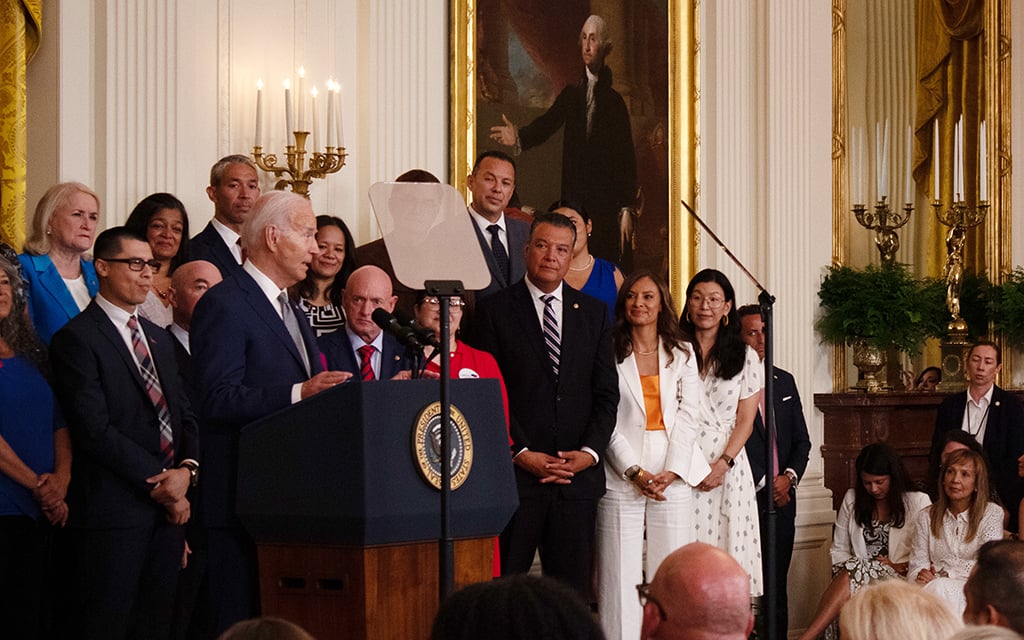
President Joe Biden addresses migrants and others in the East Room of the White House on June 18, 2024. Sen. Mark Kelly, D-Ariz., stands to his left. (Photo by Benjamin Adelberg/Cronkite News)
The financial obstacles brought her to Aliento, an Arizona-based organization that provides resources to people in the country illegally. Aliento helped her attain a full ride scholarship at Grand Canyon University, where she is studying biology and aspires to become an oncologist.
Today, Heredia volunteers with the Society of St. Vincent De Paul, a charity group, as an interpreter for newly arrived migrants seeking medical care. She credits nonprofits for saving her life, and wants to give back by helping others get what she needed most as a child – affordable healthcare.
As a Dreamer, she is unable to vote. Instead, she goes door-to-door in Phoenix, Tempe and Goodyear with the Arizona Students’ Association to encourage voters to stand with pro-immigrant candidates and candidates fighting to lower the cost of higher education. In August, the group will begin a get out the vote push.
“Our lives are on the line. Keeping our families together is on the line,” Heredia said. With Trump trying to end natural born citizenship, she added, “This is a risk for everybody, not just undocumented youth.”
Arizona activists are battling policies at the state and national level that target the immigrant groups.
Project 2025, a 900-page blueprint for a second Trump term drafted by former Trump aides and advisors, promotes policies that migrants and their advocates abhor: family separation, mass deportations, an end to DACA, a military crackdown at the border and more.
“Even though it may seem like since you can’t vote, you’re blocked from participating in democracy, that’s not the case,” said Mario Montoya, a DACA recipient and a research analyst and coalition consultant at Aliento. “You can have these conversations, staying informed, mobilizing your community, and speaking out on things and issues that you want to change.”
Montoya said he can relate to the helplessness felt by people who see their lives in the balance in an upcoming election but can’t vote. Channeling that into mobilization takes away the sting, he said.
“I was once in those shoes of, ‘well, I can’t vote, I can’t really do anything. So what’s the point?’” he said. “What really helped me was … being able to share with my community members.”
